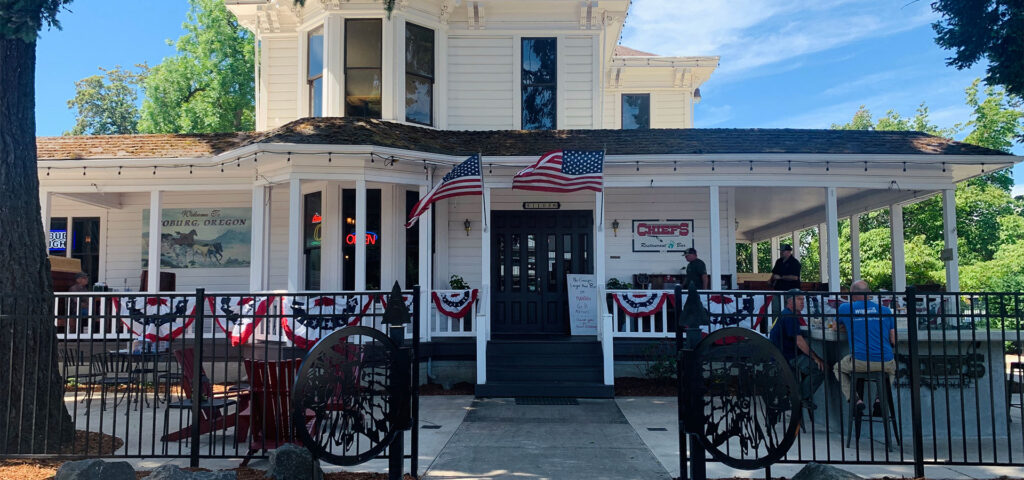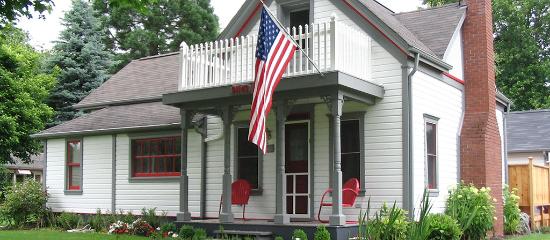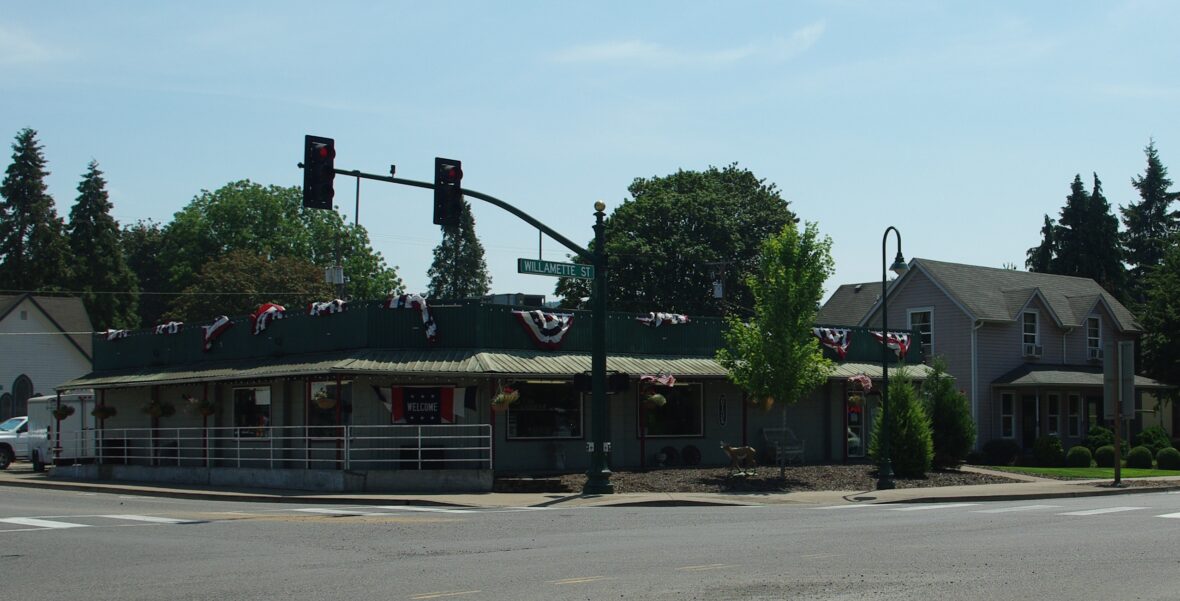Coburg is a city (and a National Historic District) in Lane County, Oregon, United States, 8 miles (13 km) north of Eugene.
1. The city’s population as of the 2010 census was 1,035.
2. Founded in 1847, Coburg has retained the characteristics of traditional small town with walkable and close ties to the surrounding farming communities that stretch in all directions.
3. Maintaining these characteristics is the central part of the city’s community vision process completed in 2017.
4. The city was originally named Diamond after John Diamond, an early pioneer in the area, on whose land claim the city was located.
5. The city’s current name comes from a stallion that was named after the Coburg district of Bavaria, Germany, from whence the horse had been imported.
6. The Coburg Historic District was placed on the National Register of Historic Places in 1986.

7. The period of significance of the buildings in the district dates back to 1875.
8. The City installed a sewer system in 2011 to 2015, leading to a new period of growth in both residential and commercial investment.
9. Downtown is a national historic center that includes 30 buildings on the register. Coburg is known for its attractive downtown, agricultural business connections, antique shops and annual antique fair.
10. Beginning in 2018, Coburg will host the Pacific Northwest Marathon.
11. Coburg is headquarters for Marathon Coach Corporation, a manufacturer of luxury bus conversion motorcoaches.
12. Marathon Coach has a manufacturing plant in Coburg, as well as plants in Grand Prairie, Texas, and San Antonio, Florida. Other businesses include APEL Extrusions.

13. Until the practice was discontinued in 2005, Coburg’s city government had generated hundreds of thousands of dollars for its budget through speeding fines at a speed trap on Interstate 5 located outside of city limits.
14. By 2003, the city was raising nearly half of its $1.7 million annual budget through traffic fines.
15. The speed trap was temporarily ended when Floyd Prozanski, a state legislator from Eugene, sponsored bills to make the practice against the law, effective January 2004. Police Chief Hudson also lost his job, following the adoption of the new law.




